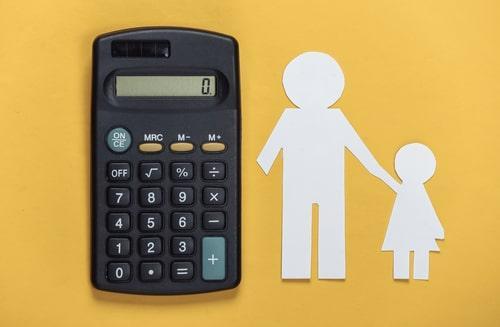Recent Blog Posts
Understanding Paternity and Parentage Laws in Kane County
 Reports show that approximately 40 percent of babies are born to unwed parents. In Illinois, a parent’s marital status can affect parentage and paternity issues. Whether you are a mother or father, or you soon will be, it is important to understand how Illinois paternity laws may influence your situation. Child support, child custody, and several other important matters hinge upon parentage.
Reports show that approximately 40 percent of babies are born to unwed parents. In Illinois, a parent’s marital status can affect parentage and paternity issues. Whether you are a mother or father, or you soon will be, it is important to understand how Illinois paternity laws may influence your situation. Child support, child custody, and several other important matters hinge upon parentage.
How to Establish Parentage in Illinois
Most parentage issues are paternity issues affecting fathers. Because the mother gives birth to the child, there is rarely doubt about who a child’s mother is. When a mother gives birth, she is automatically the child’s legal parent. If the mother is married or was married at the time of conception, her husband is considered the father.
In the case of unmarried parents, paternity may need to be established. A Voluntary Acknowledgement of Paternity (VAP) is a document used to confirm the identity of a child’s father. A father should only sign a VAP if he is sure that he is actually the child’s biological parent. If there is doubt about who the child’s father is, the child and presumed father may need to undergo DNA testing to confirm their biological relationship.
How Are Subpoenas Used in Illinois Divorce Cases?
 In an ideal world, parties in a divorce case would be cooperative and respectful. They would freely disclose financial information, hand over necessary documents, and negotiate divorce issues in good faith. Unfortunately, this rarely happens. Divorcing spouses and other relevant parties in a divorce may sometimes refuse to cooperate with requests. In this case, the court may issue a subpoena that requires the party to take certain actions.
In an ideal world, parties in a divorce case would be cooperative and respectful. They would freely disclose financial information, hand over necessary documents, and negotiate divorce issues in good faith. Unfortunately, this rarely happens. Divorcing spouses and other relevant parties in a divorce may sometimes refuse to cooperate with requests. In this case, the court may issue a subpoena that requires the party to take certain actions.
What Is a Subpoena?
A subpoena is a court order requiring a party to do something under penalty of law. Ignoring a subpoena can lead to charges for contempt of court. Failure to comply with a subpoena is punishable by hefty fines and even jail time. Often, subpoenas force a party to provide evidence or testimony in a court case.
Why Are Subpoenas Used During Divorce?
In the context of divorce and family law cases, subpoenas are sometimes used to compel a spouse or other party to provide some type of information that is relevant to the case.
What Business Owners Should Know About Getting Divorced in Kane County, Illinois
 Owning your own business can be a fulfilling and lucrative way to earn a living. Whether you are a business owner or a non-owner with significant business interests, it is important to consider how business assets will be dealt with during divorce.
Owning your own business can be a fulfilling and lucrative way to earn a living. Whether you are a business owner or a non-owner with significant business interests, it is important to consider how business assets will be dealt with during divorce.
Businesses Are Treated Like Other Forms of Property in an Illinois Divorce
The Illinois Marriage and Dissolution of Marriage Act explains how property is addressed in a divorce. Assets acquired during the marriage are marital property belonging to both spouses. Non-marital assets are those assets that a party owned before the marriage. However, there are exceptions to these guidelines. Businesses, professional practices, investments, and business interests are subject to the same property division rules as any other asset in a divorce.
Determining Ownership Rights May Be Complicated
Understanding if your marriage is marital or non-marital property is not always easy. For example, consider a husband who owned a small business before marrying. According to Illinois law, property acquired before marriage is non-marital property belonging solely to the spouse who originally obtained the asset. However, if money from a joint account was used for the business or the other spouse contributed to the business’s increased value, the business may be classified as marital property.
Can I Get My Marriage Annulled in Kane County, Illinois?
 Newlyweds are usually portrayed as doe-eyed romantics enjoying the beginning of a happy marriage. However, marriage does not always work out this way. Many newlyweds find themselves regretting their marriage vows. Spouses in this situation may wish to get their marriage annulled. However, annulments are only possible in certain situations. If you cannot get an annulment, your only option for ending your marriage is divorce.
Newlyweds are usually portrayed as doe-eyed romantics enjoying the beginning of a happy marriage. However, marriage does not always work out this way. Many newlyweds find themselves regretting their marriage vows. Spouses in this situation may wish to get their marriage annulled. However, annulments are only possible in certain situations. If you cannot get an annulment, your only option for ending your marriage is divorce.
How Can You Get Your Marriage Annulled?
Many people misunderstand what an annulment actually is. They assume that annulment is a shortcut to divorce. In reality, divorce and annulment are two different legal procedures. Divorce ends a marriage. Annulment states that a marriage was never valid to begin with.
Annulment, or as it is called in Illinois, “Declaration of Invalidity of Marriage” is only possible if there is an issue with the marriage that makes the marriage invalid or prohibited by law.
What Property is Included in the Marital Estate in Illinois?
 When married couples divorce, they must address several important financial concerns. The assets and debts accumulated by the spouses during the marriage will need to be categorized, valued, and divided. According to Illinois property division laws, most assets accumulated by the spouses during the marriage are included in the marital estate. Both spouses have a right to an equitable portion of the marital estate in a divorce. However, property division is not always this straightforward.
When married couples divorce, they must address several important financial concerns. The assets and debts accumulated by the spouses during the marriage will need to be categorized, valued, and divided. According to Illinois property division laws, most assets accumulated by the spouses during the marriage are included in the marital estate. Both spouses have a right to an equitable portion of the marital estate in a divorce. However, property division is not always this straightforward.
Property Accumulated During the Marriage
As a general rule, most property acquired by either spouse is part of the marital estate. This includes wages, bonuses, commissions, tips, and any other income earned by the parties. Real estate, vehicles, and household items purchased by the couple are typically marital property. The increase in value of an asset during the marriage may also count as marital property. For example, the increase in value of a small business or a spouse’s retirement accounts will likely count as marital property–even if the asset was acquired before the marriage. It should be noted that most property accumulated during the marriage is marital property regardless of who officially holds the title to the property.
Top 5 Questions About Child Support, Answered
 Parents who are no longer together are still expected to provide financial support to the child. Often, this is accomplished through a child support order. Whether you are a paying parent or the recipient of child support or you want to establish child support for the first time, you may have many different questions. Child support matters can be complicated. Read on to learn answers to some of the most frequently asked questions about child support in Illinois.
Parents who are no longer together are still expected to provide financial support to the child. Often, this is accomplished through a child support order. Whether you are a paying parent or the recipient of child support or you want to establish child support for the first time, you may have many different questions. Child support matters can be complicated. Read on to learn answers to some of the most frequently asked questions about child support in Illinois.
Who Has to Pay Child Support?
In Illinois, child custody involves two major components: the allocation of parental responsibilities and parenting time. Parenting time is the time a parent is responsible for supervising the child and attending directly to the child’s needs. The parent with the greater amount of parenting time is the recipient of child support. The parent with less parenting time pays child support.
How Much Does a Parent Pay?
What is the Mandatory Waiting Period for Divorce in Kane County?
 If you have decided to end your marriage, you may be interested in learning the next steps. Divorce laws vary from state to state and change over time. You may have heard that there is a mandatory waiting period to get divorced in Illinois. Perhaps a well-intentioned friend or family member explained to you that you have to be separated a certain amount of time before you can file for divorce or you read this information on a non-state-specific website.
If you have decided to end your marriage, you may be interested in learning the next steps. Divorce laws vary from state to state and change over time. You may have heard that there is a mandatory waiting period to get divorced in Illinois. Perhaps a well-intentioned friend or family member explained to you that you have to be separated a certain amount of time before you can file for divorce or you read this information on a non-state-specific website.
In 2022, there is not a mandatory waiting period for divorce in Illinois. However, there are situations in which a separation period is needed to prove that the grounds for divorce have been met. Read on to learn more.
Illinois Separation Period Before Divorce
Once a couple has decided to divorce, they usually want the process to start sooner rather than later. If you are eager to get divorced and move on with your life, you may be pleased to learn that Illinois does not have a mandatory waiting period. That being said, one or both spouses must have lived in Illinois for at least 90 days in order to get divorced in Illinois. So, if you recently moved to the state, you may need to wait 90 days to qualify for divorce.
How Does Visitation Work in Kane County, Illinois?
 As a parent, it can be extremely difficult to share your child with an ex. Whether you were married to the other parent for years, or just briefly dated, child custody can be a complicated, emotionally-charged topic. To make the situation even more complicated, child custody laws vary from state to state. In Illinois, child custody is now called the allocation of parental responsibilities. Visitation is called parenting time. If you are an unmarried or divorcing parent, read on to learn how the state handles parenting time and other child-related concerns.
As a parent, it can be extremely difficult to share your child with an ex. Whether you were married to the other parent for years, or just briefly dated, child custody can be a complicated, emotionally-charged topic. To make the situation even more complicated, child custody laws vary from state to state. In Illinois, child custody is now called the allocation of parental responsibilities. Visitation is called parenting time. If you are an unmarried or divorcing parent, read on to learn how the state handles parenting time and other child-related concerns.
Divorcing Parents and Illinois Parenting Plans
If you are getting divorced, you and the other parent will be asked to write up a “parenting plan” or parenting agreement. This document will describe how you plan to divide parenting time, make major decisions about your child’s healthcare and education, and address other important child-related concerns. If you can agree to the terms in the parenting plan, you can submit a joint plan to the court for approval. If you are unable to agree on one or more issues, you will each submit your plans separately to the court.
Should I Try a Trial Separation if My Marriage is Failing?
 Any married person can tell you that marriage takes work. Over the years, many couples find themselves exasperated and considering divorce. Financial stress, child-related concerns, infidelity, and countless other issues can harm a marriage relationship. However, it can be difficult to know when a marriage is truly beyond saving. This is why many married couples agree to a “trial separation” before deciding whether or not to get divorced. If you are thinking about a trial separation, keep the following things in mind.
Any married person can tell you that marriage takes work. Over the years, many couples find themselves exasperated and considering divorce. Financial stress, child-related concerns, infidelity, and countless other issues can harm a marriage relationship. However, it can be difficult to know when a marriage is truly beyond saving. This is why many married couples agree to a “trial separation” before deciding whether or not to get divorced. If you are thinking about a trial separation, keep the following things in mind.
Being Separated and Being Legally Separated Are Two Different Things
The term “separated” is often used to describe a situation in which a married couple is living separately but has not yet begun divorce proceedings. Usually, when couples talk about a trial separation, they are referring to an informal agreement to live separate lives for a certain period of time. This situation should not be confused with a legal separation.
How Can Illinois Equitable Distribution Laws Influence My Divorce?
 Separating finances is often one of the most complicated parts of the divorce process. Because the division of assets and debts can have such a significant impact on spouses’ post-divorce future, it is also often one of the most contentious aspects of the divorce process. If you are getting divorced in Kane County, it is important to understand how marital property is divided according to Illinois law.
Separating finances is often one of the most complicated parts of the divorce process. Because the division of assets and debts can have such a significant impact on spouses’ post-divorce future, it is also often one of the most contentious aspects of the divorce process. If you are getting divorced in Kane County, it is important to understand how marital property is divided according to Illinois law.
Dividing Property and Debts During Divorce
Countless factors influence the complexity of the property division process, including the spouses’ ability to agree. If you and your spouse are on relatively good terms, you may be able to reach a property division settlement outside of court. Your respective lawyers can help you negotiate the terms of your property division arrangement if you and your spouse struggle to reach an agreement on your own. If you are unable to reach an agreement or settlement, the court will determine how to divide property for you. Illinois courts divide marital property according to a principle called “equitable distribution.”











